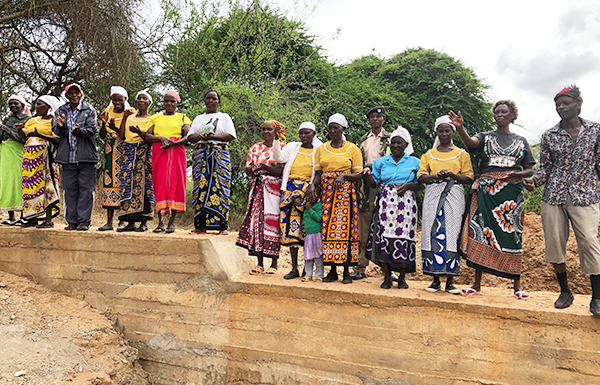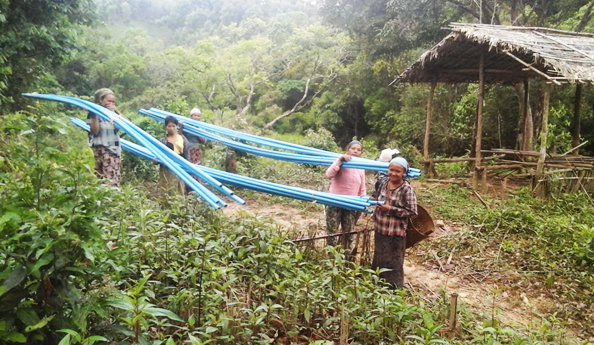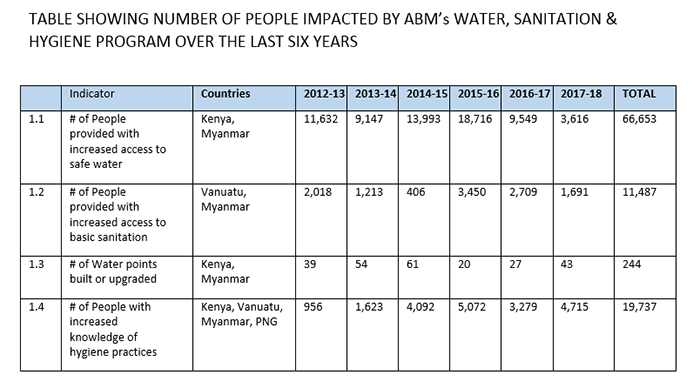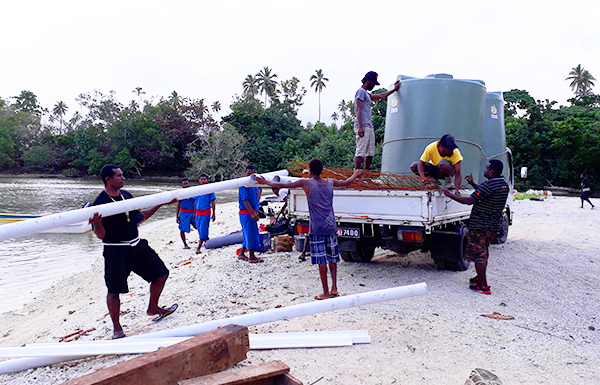ABM Archive Website
THIS WEBSITE CONTAINS ARCHIVE MATERIALS FOR HISTORICAL REFERENCE ONLY
For up-to-date information, including our latest appeals, news, and resources, please visit our current website.
Six Years Measuring ABM’s Impacts in Water, Sanitation and Hygiene (WASH)
|
Contributes to Sustainable Development Goal 6 (targets 6.1, 6.2, 6.3, 6.4, 6.6 and 6b) |
 |
| Members of the Kwa Usingi Sand Dam Committee proudly stand on their completed dam wall in Makueni County, Kenya. The dam was built by the community, supported by ABM’s Kenyan partner, Anglican Development Services, Eastern, using funding from Australian Aid. |
Since 2013, ABM has provided 66,653 people with increased access to safe water in Kenya, Vanuatu and Myanmar. This has been brought about by a total of 244 “water points” being built or upgraded during that period. Water points include water collection and storage structures such as the sand dams we build with our partners and their communities in Kenya, underground wells, piping systems rainwater tanks and earth wall dams.
ABM has also supported some partners to build water points following disasters, and this has especially been the case in Vanuatu, the Solomon Islands and Nepal.
ABM’s partners recognise the importance of having sustainable water facilities. Strong local ownership is key to sustainability. Each partner worked with locally-formed water committees which oversee the initial works, and then continue to ensure the facilities are maintained so they can provide many years of service. And evidence from ABM’s recent evaluation of the Kenyan work showed that some individuals and community groups are starting to build similar facilities with funding obtained from government and other sources, including their own savings.
 |
|
Women, men and children from the village all join in carrying the PVC pipes between their village, Yung Let |
ABM has also provided increased access to basic sanitation to 11,487 people in Vanuatu and Myanmar during the past six years. This includes toilets and handwashing facilities.
When people begin to have access to clean water and sanitation, it is important that they understand good hygiene practices. So, in addition to improving access to clean water, ABM has supported hygiene awareness-raising sessions conducted by our partners in PNG, Vanuatu, Myanmar and Kenya. So far, almost 20,000 people have been reached. This figure includes prisoners in PNG and numerous Kenyan school children. When ABM visited two of the Kenyan schools in March 2018, children enthusiastically demonstrated how they washed their hands before each meal. And educating children is a first step in educating whole families.
ABM is currently working with partners to ensure vulnerable people, including people with a disability, are key to planning, implementing and using new and upgraded water facilities in future.

 |
| These men are transporting PVC rainwater tanks and piping to Malo in Vanuatu as part of ABM’s response to the Ambae Volcano resettlement, through our long-term partner, the Anglican Church of Melanesia. |
< Back


